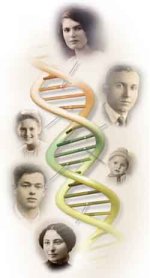We like to believe we are free — free to think, free to choose, free to act. From spiritual teachings that preach the power of intention to modern philosophies that emphasize personal responsibility, the concept of free will has been deeply romanticized. But what if the choices we make, the fears we carry, and even the lives we build aren’t entirely our own? What if memory — not the kind we form ourselves, but what we inherit — is silently scripting parts of our existence?
Recent scientific research into what is now being called the cultural memory pool suggests just that. A striking study involved conditioning a generation of rats to fear the smell of cherries by pairing it with electric shocks. Surprisingly, two generations later — despite the offspring having no direct contact with the original group — the rats still showed fear responses to the cherry scent. These findings point to a powerful reality: memories and fears can be biologically passed down through generations. This is more than simple trauma; it’s encoded experience.
This phenomenon isn’t limited to rodents. In human populations too, intergenerational trauma has been widely observed. Children and grandchildren of Holocaust survivors, for instance, often report heightened anxiety, hypervigilance, and stress — despite having grown up in relatively safe environments. Similarly, the descendants of those who faced colonization, war, slavery, or systemic discrimination continue to carry psychological and physiological burdens from those histories. The trauma was not theirs — and yet, somehow, it is.
So where does this leave the idea of free will?
If inherited memories and unconscious fears dictate our responses before we even have the chance to form our own, is our sense of freedom just an illusion? Science appears to support a more deterministic view — one in which our choices are shaped by a complex web of biology, history, and environment. Even spirituality, which once offered solace in the idea that “you create your reality,” now finds itself facing this uncomfortable truth: not all thoughts and emotions are born in the present.
Understanding the concept of inherited memory has practical implications. It highlights the importance of mental health interventions that address not just individual experiences but also transgenerational patterns. Trauma-informed therapy, for instance, is increasingly being used to help individuals recognize how certain fears and behaviors may be rooted in family or cultural history. Neuroscience and epigenetics are also beginning to explore how stress-related gene expression can be reversed or regulated over time through conscious intervention and environmental change.
Ultimately, the discussion around free will may need to shift from whether it exists in an absolute sense to how much control we can realistically exert, given our biological and historical context. Recognizing the influence of inherited memory does not eliminate personal responsibility — but it redefines the starting point of our choices.

Recent scientific research into what is now being called the cultural memory pool suggests just that. A striking study involved conditioning a generation of rats to fear the smell of cherries by pairing it with electric shocks. Surprisingly, two generations later — despite the offspring having no direct contact with the original group — the rats still showed fear responses to the cherry scent. These findings point to a powerful reality: memories and fears can be biologically passed down through generations. This is more than simple trauma; it’s encoded experience.
This phenomenon isn’t limited to rodents. In human populations too, intergenerational trauma has been widely observed. Children and grandchildren of Holocaust survivors, for instance, often report heightened anxiety, hypervigilance, and stress — despite having grown up in relatively safe environments. Similarly, the descendants of those who faced colonization, war, slavery, or systemic discrimination continue to carry psychological and physiological burdens from those histories. The trauma was not theirs — and yet, somehow, it is.
So where does this leave the idea of free will?
If inherited memories and unconscious fears dictate our responses before we even have the chance to form our own, is our sense of freedom just an illusion? Science appears to support a more deterministic view — one in which our choices are shaped by a complex web of biology, history, and environment. Even spirituality, which once offered solace in the idea that “you create your reality,” now finds itself facing this uncomfortable truth: not all thoughts and emotions are born in the present.
Understanding the concept of inherited memory has practical implications. It highlights the importance of mental health interventions that address not just individual experiences but also transgenerational patterns. Trauma-informed therapy, for instance, is increasingly being used to help individuals recognize how certain fears and behaviors may be rooted in family or cultural history. Neuroscience and epigenetics are also beginning to explore how stress-related gene expression can be reversed or regulated over time through conscious intervention and environmental change.
Ultimately, the discussion around free will may need to shift from whether it exists in an absolute sense to how much control we can realistically exert, given our biological and historical context. Recognizing the influence of inherited memory does not eliminate personal responsibility — but it redefines the starting point of our choices.

